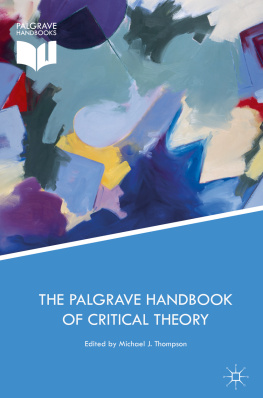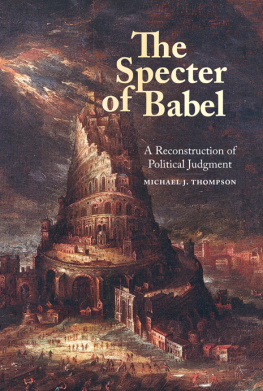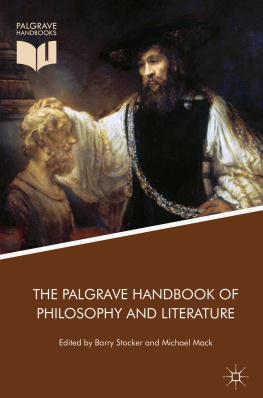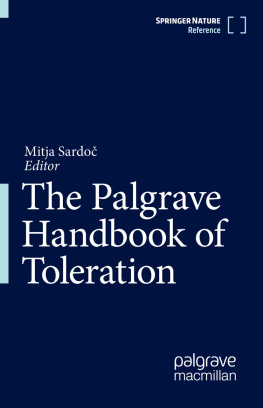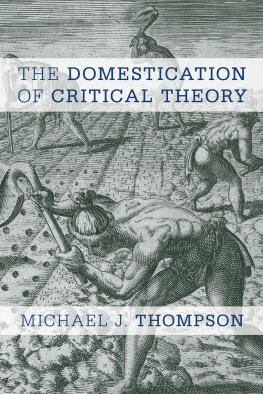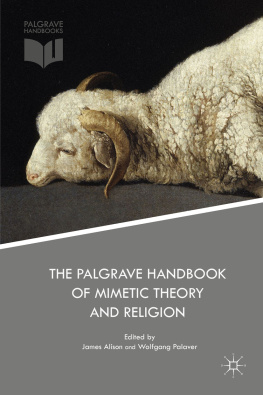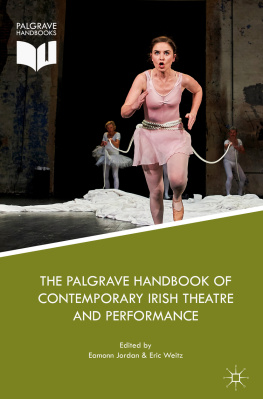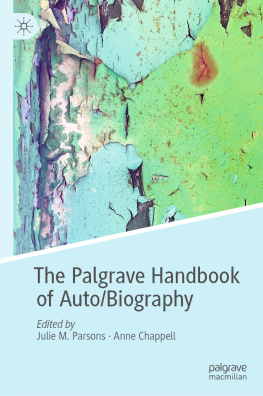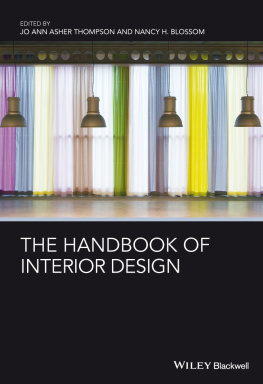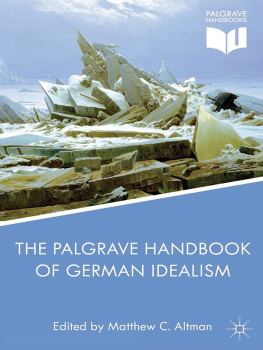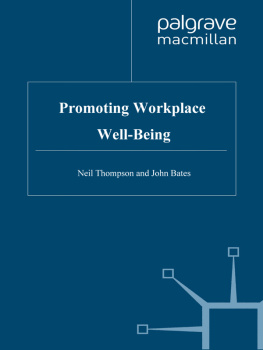1.1 The Concept of Critique
Whether viewed as a tradition, as a set of questions, or as a series of distinct thinkers, critical theory has continued to attract attention in academic circles throughout the postWorld War II era. The reasons for this should come as little surprise. The members of the Institute of Social Research at the University of Frankfurt in the years leading up to the victory of Nazism in Germanywhat we generally know as the Frankfurt Schoolhad in view some of the most compelling problems and questions of modern society. Critical theory is not, however, simply a subfield within social theory, philosophy, or the social sciences. It is a distinctive form of theory in that it posits a more comprehensive means to grasp social reality and diagnose social pathologies. It is marked not by a priori ethical or political values that it seeks to assert in the world, but by its capacity to grasp the totality of individual and social life as well as the social processes that constitute them. It is a form of social criticism that contains within it the seeds of judgment, evaluation, and practical, transformative activity. Critical theory is, then, a radically different form of knowledge from mainstream theory and social science, one that the chapters contained in this book will explore and chart.
If we think of what is distinctive about critical theory, we must begin with the concept of critique ( Kritik ) itself. Critique is a distinctive form of knowledge derived from the insights of German idealism and developed in Marxs writings that is opposed to the merely empirical and positivist models of knowledge. The concept of critique is an essential feature of this tradition as a whole and of its distinctiveness. For one thing, it means not simply an act of judgment or resistance, but also a specific way of relating to the world, a way that any subject relates to an object. This is because critique is a means to relate what is perceived in everyday life with a deeper, more rational knowledge that world. For Kant, the activity of critique was applied to relating the perception of objects in the mind ( phenomena ) and our rational, conceptual grasp of those objects ( noumena ). Marx, too, saw critique as the relating of the isolated phenomena of the materialeconomic world (commodities) and the various aspects of the systems of production (those structured by capital) that constituted them, as well as the community that produced them. And for Freud, a similar strategy was taken to peer beneath the apparent forms of human behavior and the underlying rational structures of the unconscious that produced them. All were concerned with the power of reason to unmask what appears to us and explore the rational structures that grant us rational access to the world.
In this sense, critique is a more comprehensive way of relating subject and object; it entails the subjects capacity to grasp an object in its totality, in its real, actual form. It means, as Hegel had posited in his Phenomenology of Spirit , the consequent transformation of the subject as a result of this deepened knowledge of the object. The concept of a critical theory of society maintains that any valid, true form of knowledge about society and its products is one that is aware not only of the object of consciousness and its various dynamics, but also of the subjective factors of cognition that determine the knowledge of that object. A critical theory of society is therefore set with the task of uncovering the social conditions under which knowledge about itself is articulated, since the way we comprehend the objective world is related to the ways we conceive of ourselves. At the same time, it was a form of thinking that is designed not only to comprehend, but also to transform : its purpose is to change not only our knowledge of the objective worldof society, of institutions, of culture, and so onbut simultaneously the nature of the subject in a practical sense .
Today, many different kinds of theory lurk under the banner of critical theory. No longer associated with the theories, the philosophical traditions, and the political aims of the initial generation of critical theorists, much of what passes for critical theory today is associated with anything that seems to be critical of culture and society. Hence, strands of thought such as feminism, deconstruction, and postcolonialism, among others, have been crowded under the banner of critical theory. But to do this is to commit an error about what critical theoryindeed, about what critique actually is. To be sure, much of this aberrant use of the term stems from the destructive impulse of postmodernism and its project of destroying reason as a privileged position from which to judge and to understand power, domination, freedom, and human progress as well as the pseudo-political radicalism of academics alienated from real politics. Despite what many have surmised, critical theory was always preoccupied with the normative validity of human progress, by the need to defend the political and cultural values of the Enlightenment and to expand the sphere of human emancipation through reasoned, rational consciousness, and activity (Bronner ). For the theorists of the Frankfurt School, reason had been corrupted by modernity and degraded by instrumentality toward the ends of domination.
What was central to critical theory as a form of thought was its ability to see the inherent relation between thought and action. Truly rational (i.e., critical) thought would lead to transformation, to new shapes of human activity, since it anticipates a release of emancipatory reflection and a transformed social praxis (Schroyer ). This is because defective forms of reasoning lead to the re-creation and sedimentation of the prevailing, existent reality and to the continued endorsement by members of that society of its irrational and dominating relations and forces. The key insight of a critical theory of society is therefore not meant to impose some set of a priori values and ideals onto the social world, but to unravel the contradictions that already exist within it; to make evident an emancipatory insight into the very fabric of what we take as given, as basic to our social world.
1.2 The Origins of Critical Theory
The political and intellectual origins of critical theory can be found in the aftermath of the Russian Revolution and the movements that occurred throughout the first decades of the twentieth century. Orthodox Marxism set forth a rigid scientism that, it believed, could predict an inevitability to the emergence of revolution and communist social transformation. They viewed Marxs core contribution to be that of a scientific understanding of history based on class struggle, one which conceived of the process of historical change as essentially mechanistic and systemic. Class society worked according to certain lawslaws that, once discovered, would predict the inevitable collapse of capitalist society and the mobilization of the working class toward revolutionary consciousness and activity. Actual circumstances on the ground, however, showed that this model of social change was far from accurate. What emerged was a crisis in theory based on the political failures of socialist movements and a need to reformulate the practicalpolitical aspect of working-class movements (Bronner ). Lacking was a more nuanced theory of society and human action. In providing a revised understanding of consciousness, personality, culture, and civil society, these thinkers would open a pathway toward critical theory by setting the foundations for an alternative view of the subject and society and its relation to politics and the opposition to capitalism, the administrated society, and instrumental reason.

